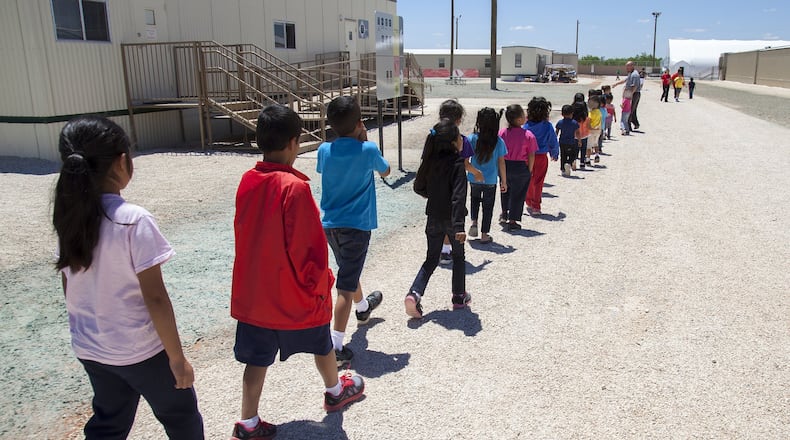Before the Trump administration started separating parents and children caught illegally crossing the border, immigrant families were held together in two facilities in South Texas.
Human rights activists were outraged by the Obama administration’s decision to lock up the families, calling the practice inhumane and psychologically harmful. Immigrant watchdogs, meanwhile, argued the family detention centers helped deter illegal immigration and protect national security.
At the South Texas Family Residential Center in Dilley, Texas, women and children lived 12 to a building, complete with bunk beds. From their barracks, they could walk a short distance to a library, chapel, and medical and dental clinics. There was also a "city park" with a soccer field, volleyball court and playground. Children attended school there four hours a day.
Credit: U.S. Immigration and Customs Enforcement
Credit: U.S. Immigration and Customs Enforcement
Erika Cisneros is one of the more than 100 attorneys, paralegals and other volunteers who streamed into South Texas to help the immigrant families. She objects to separating the children from their parents, saying she is particularly worried about the long-term psychological impact on the boys and girls.
“You have innocent young children who didn’t choose – didn’t make that decision to come with their parents. Their parents brought them,” said Cisneros, an immigration attorney based in Moultrie, Ga. “These kids are being traumatized.”
President Donald Trump addressed the issue Monday at the White House during a meeting with the National Space Council, emphasizing border security and repeating his call for a merit-based legal immigration system.
Credit: U.S. Immigration and Customs Enforcemen
Credit: U.S. Immigration and Customs Enforcemen
“The United States will not be a migrant camp and it will not be a refugee holding facility,” he said. “It won't be. If you look at what's happening in Europe, if you look at what's happening in other places, we can't allow that to happen to the United States — not on my watch.”
In 2015, The Atlanta Journal-Constitution visited that facility in Dilley and a separate one in Karnes City, Texas, and interviewed some of the detainees and the pro bono attorneys from Georgia who were helping them. Read the AJC's coverage here, including photos and a video.
About the Author
Keep Reading
The Latest
Featured






